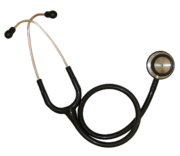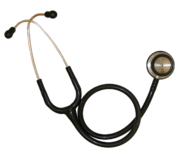I’ve had two jobs since I completed a fellowship is gastroenterology over 20 years ago. For the first decade, I was a salaried physician.
I’ve had two jobs since I completed a fellowship is gastroenterology over 20 years ago. For the first decade, I was a salaried physician. Afterwards, I promoted myself to private practice. Each model has its advantages and drawbacks, but for me the private practice model wins out. The climate in Cleveland is extremely inhospitable to private practice, because of two mega-medical institutions that incinerate private practices as their boiling lava flows across the region. So far, our practice is still viable, but the prospects for its long term health and welfare are questionable.
One of the advantages of working for a straight salary is that income dies not depend upon productivity. (My employer maintained that we had a productivity bonus, but in reality there wasn’t much the physicians could do to adjust their salaries in either direction.) One of the disadvantages of private practice, particularly where I practice, is the need to hustle aggressively for patients, a task I neither enjoy nor do particularly well. In my present professional world, an empty schedule means empty collections.
So, when a patient decides to miss an appointment, the ramifications are quite different for me now than it was during my first job. At least when I was reading The New York Times during a gap in the schedule while I was on salary, my paycheck didn’t change. Not so these days.
My partners and I are forever lamenting the empty spaces in our schedules when patients do not show up or call in advance to notify us that they will not be coming.
These acts hurt us economically and forfeit an appointment slot that another patient would have happily occupied. Moreover, not showing up is downright inconsiderate. Sorry, if some readers find this latter view to be harsh, but I don’t wish to sanitize it as a venial sin.
Of course, sometimes life happens and an appointment is missed or forgotten. As a member of the human species, I get this. However, many of the patients who are AWOL at appointment times have been contacted a day before by a living, breathing member of our superb staff. Here, the absence is inexcusable.
Should these patients be assessed a fee for failure to appear? If a patient does call to cancel, how much notice is reasonable? 24 hours? 10 minutes? What if their insurance companies prohibit us by contract from charging patients these fees? Then, what leverage do we have?
Should we leave a heartfelt flyer in the waiting room pleading for cooperation on this issue? What good would that do? The ones who really need to read it aren’t there.








